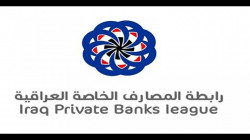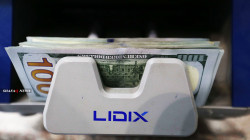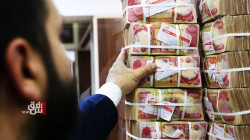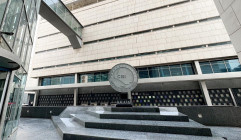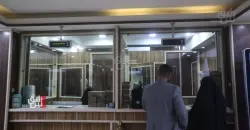Iraq to revamp state-owned banks, seeking to modernize financial sector
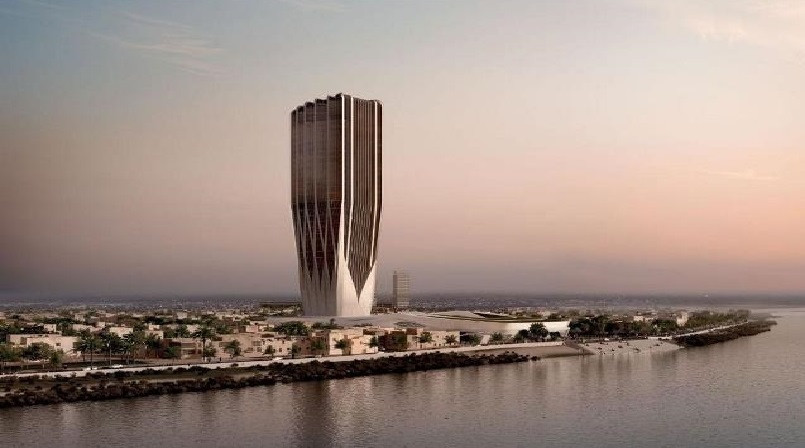
Shafaq News/ Iraq is set to overhaul its state-owned banking sector in a bid to modernize services and address mounting financial burdens, officials said.
The restructuring comes after years of pressure from the International Monetary Fund (IMF) to reform Iraq’s banking system, dominated by state-owned banks that hold the majority of the country’s deposits. The IMF has long argued that such a reform is necessary to attract foreign investment and integrate Iraq into the global financial system.
Restructuring Iraq's Banking Sector
“The restructuring of banks is in line with the government’s program for comprehensive banking reform,” said Mudher Muhammad Saleh, economic advisor to the Prime Minister. “State-owned banks dominate 88% of banking sector investments, leaving only 12% for the private sector. This imbalance has hindered competition and prevented the banking sector from reaching its full potential.”
Saleh noted that the reform will also include private banks, ensuring they meet the same standards as their state-owned counterparts. He highlighted the need to deepen the financial sector, pointing to the low ratio of credit to deposits in the private banking sector.
“It is high time to reform the banking sector, both public and private, to create a unified, competitive, and well-governed banking market,” Saleh said.
The Iraqi government has already initiated a study on the restructuring of state-owned banks following a meeting between Prime Minister Muhammad Shia al-Sudani and a delegation from Ernst & Young. In January 2023, Al-Sudani ordered an eight-month plan to improve the performance of Rafidain Bank, one of Iraq’s largest state-owned banks.
Hurdles?
The state-owned banks, particularly the Rafidain and Rashid banks, continue to major hurdles in their modernization efforts, according to a former Central Bank of Iraq official.
Mahmoud Dagher told Shafaq News Agency that these institutions have primarily functioned as government salary disbursing entities rather than full-fledged banks. "Their technical capabilities are limited, and they rely heavily on electronic payment companies for basic operations."
The sheer size of these banks, with numerous branches and a large workforce, complicates the reform process. Additionally, international sanctions imposed in the 1990s following the Gulf War continue to restrict their ability to engage in international transactions.
"There are unresolved international sanctions and court rulings that prove the indebtedness of some state banks," Dagher said. "This isolation has hindered their participation in the global financial system."
He expressed doubts about the effectiveness of large investments in these banks, arguing that such expenses would not yield significant results. "It would be futile to spend substantial sums without achieving decisive outcomes," he said. "The costs incurred on these banks will not lead to a restructuring that aligns their operations with the modernization and technological advancements seen in other banks."
The Rafidain and Rashid banks have been subject to international sanctions since the 1990s due to the Saddam Hussein regime's invasion of Kuwait. These sanctions continue to restrict their ability to conduct international financial transactions, particularly in relation to money transfers.
Modernization And Reforms
Basim Jamil Antoine warned in a statement to Shafaq News Agency that these institutions have been operating under outdated systems and procedures for too long and major reforms are needed to align the banks with international best practices.
"State banks must evolve to meet the demands of the modern economy," Antoine said. "This includes eliminating bureaucratic red tape, investing in training programs, and offering a wider range of financial services."
While acknowledging the vital role of state banks as a safety net, Antoine stressed that they should not be limited to simply storing cash. They must actively participate in credit provision and other essential banking functions.
The concept of restructuring Iraq's state-owned banks has been discussed for decades, but progress has been slow. Antoine highlighted the importance of a stable security, administrative, and operational environment for implementing these reforms.
Iraq's Ministry of Finance oversees six state-owned banks, including Rafidain Bank, Rashid Bank, and the Islamic River Bank. Rafidain Bank, established in 1941, is the country's oldest commercial bank with over 146 branches domestically and internationally. Rashid Bank, founded in 1988, operates 162 branches within Iraq.
